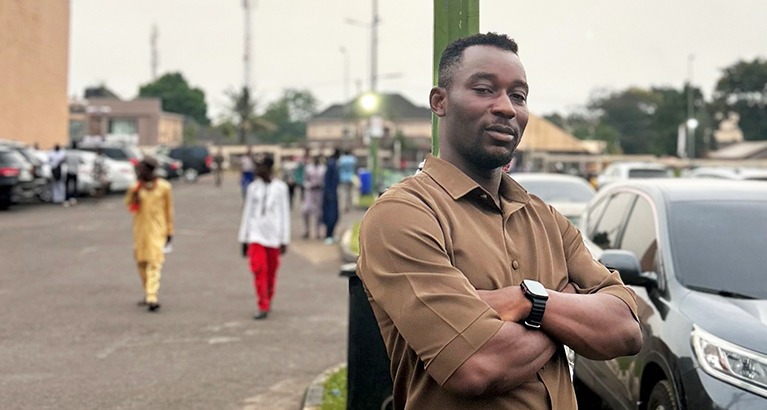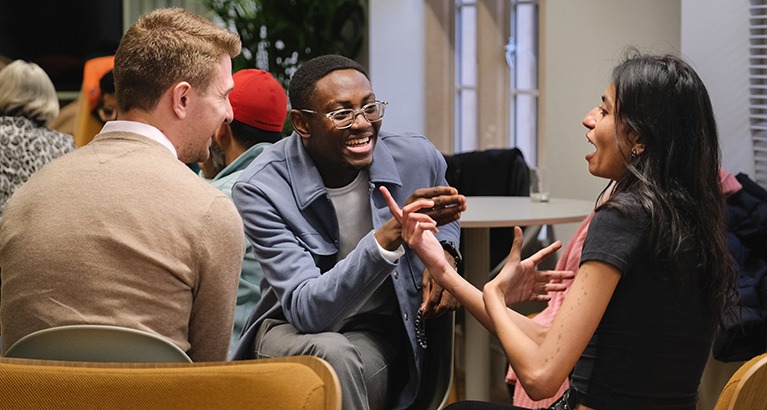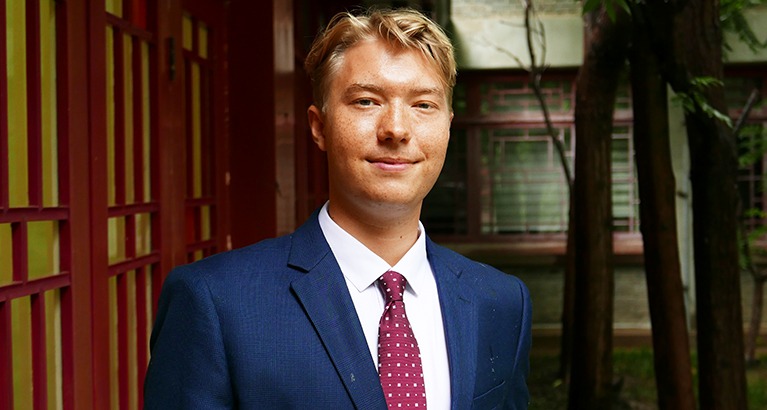Making science and tech understandable
“Ideas are bullet proof”, David McKay says in a deep voice with actorly pauses, in a YouTube video that introduces his podcast series. “When people understand science and technology, they are able to bridge divides and connect with others across boundaries of culture, language and geography.”
Making science and tech understandable to a broader audience is what motivated David, an alumnus of the MPhil in Technology Policy programme at Cambridge Judge Business School (MPhil 2010), to launch the podcast series – ‘Standing on the Shoulders of Giants’ – that became an instant hit when it was launched earlier this year.
“It’s a passion of mine, having these interesting conversations with incredible men and women who are doing some unbelievable things, so why not record them?” he says. “It gives me an excuse to get involved in different fields and expose these to others who might never have been exposed to these kinds of things.”
A passion for coding since age 12
Since graduating from Cambridge Judge, David has found himself on a ’start-up tour’ for the past decade and more – advising and investing in tech start-ups (often building up the tech team) before moving to a new adventure with another fledgling firm. Previously, he worked in bigger tech companies including Microsoft, Juniper Networks and Google (twice).
The podcast host has a long history in computer science: he has been coding since he was a mere 12 years old growing up in St Louis, Missouri (he now lives in Austin, Texas). “In computer science, the ultimate arbiter is the computer itself. It doesn’t discriminate based on race, gender, colour, or location. You could be a three-headed, purple monster for all it cares. But if your code works, it works.”
David started work on the podcast series in September 2022 and the first episode went live in February 2023. “At present, we’ve passed 2 million downloads according to Spotify, which hosts the content directly, so that’s across all platforms.”
“At present, we've passed 2 million downloads according to Spotify, which hosts the content directly, so that's across all platforms.”
Cambridge professor interviewed on climate and AI disruption
Guests have included blockchain expert Grace Rachmany, neurologist Brian Ahuja, Microsoft technologist Scott Longheyer, and rocket scientist Leon Vanstone. Another recent guest was one of David’s teachers at Cambridge Judge, Professor of Technology Policy David Reiner.
“David Reiner’s classes and his energy really stuck with me; they really made you think differently,” says David McKay. “He was always very much available too, anytime you needed to get hold of him, it was instantaneous. David is a tremendous educator and his passion for the job is contagious. He’s Canadian and we have this stereotype in the US that Canadians are genuinely friendly folks; David always lived up to that – he’s a really happy guy by default.”
David Reiner was interviewed on the podcast on a variety of topics including climate change and artificial intelligence, which he said “will be undoubtedly disruptive and particularly for certain sectors and jobs” – notably in white-collar professions which is “perhaps why we’re hearing so much about this in the media”.
Age and skills gap is an issue in tech regulation
David Reiner also talked about the age and skills gap between those seeking to regulate the technology and those who mostly use the technology – because, historically, legislation was left to older people with legal training. But that is “problematic in terms of addressing these frankly complicated issues”.
“Do you want your parents and grandparents legislating” on cutting-edge tech issues?” David Reiner asked. “On other issues it may not be as flagrantly problematic but when it comes to issues of technology and understanding these nuanced issues how do you hope to make progress when these legislatures are disconnected?”
David McKay says his inspiration for starting the podcast came from a recurring question that crossed his mind: “How do we explain incredibly nuanced topics, that require some deep technical understanding, to people who don’t understand the basics of technology? If I wasn’t doing the work I do for startups, I would love to be a university professor. I get tremendous satisfaction from learning and teaching.”
Looking back to his MPhil at Cambridge Judge, David compliments the diversity of the course: “Technology Policy ended up covering a lot of bases that even I didn’t realise it was going to. The work I did was incredibly valuable, especially in interpersonal relationships. Even though I don’t work in government, when I’ve had to deal with government, I have a much deeper understanding on how to do so.”
Related content
David McKay’s podcast ‘Standing on the Shoulders of Giants’ can be found on many platforms including YouTube, Apply among others.





